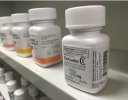- Date
- 23 February 2022
The US Opioid Crisis: Purdue Pharma's Owners Offer $6 Billion Settlement
The US Opioid Crisis: Purdue Pharma's Owners Offer $6 Billion Settlement
By BK |
What do you need to know this week?
Last week, the owners of Purdue Pharma (the Sackler family) offered to pay up to $6 billion in settlement to resolve allegations that it had contributed to the US opioid epidemic, which has led to the deaths of more than 500,000 Americans.
Purdue Pharma is the maker of a powerful painkiller “OxyContin”. The company filed for bankruptcy in 2019, following thousands of lawsuits accusing Purdue Pharma and the Sackler family of fueling the opioid epidemic through fraud and deceptive marketing.
Over the last few decades, millions of Americans have become addicted to opioids through the over-subscription and abuse of opiate-based painkillers such as OxyContin. The Covid-19 pandemic has contributed to a steep rise in overdose deaths, with 2020 seeing a rise of nearly 30% from 2019.
Why is this important for your interviews?
If the Sackler family’s settlement offer is accepted, this will be the largest pharmaceutical settlement amount ever, doubling the GlaxoSmithKline’s 2012 record of $3 billion. Under the settlement offer, all of the money would be used exclusively for the abatement of the opioid crisis, including support programmes for victims, survivors and their families.
The lawsuits have targeted all types of businesses implicated in the Opioid crisis, ranging from other pharmaceutical companies to even the pharmaceutical companies’ business advisers. Last year, Johnson & Johnson paid $230 million to settle a New York state opioid case. In addition, McKinsey & Company, a global management consultancy firm, has agreed to pay almost $574 million and has fired two partners involved in a settlement that its advice to pharmaceutical companies contributed to the deadly health crisis.
Although it may seem that these companies are finally being held accountable, you may wonder how effective these settlements actually are. For example, although the Sackler family proposed a maximum $6 billion settlement, many are dissatisfied over the size of the Sackler contribution - arguing more could have been done. In the decade before it filed for bankruptcy. Sackler family members took out more than $10 billion from the company, which are likely never to be recovered following the company’s bankruptcy. In addition, although Johnson & Johnson was initially successfully sued for a $465 million settlement in the state of Oklahoma, that lawsuit was recently overturned by the Oklahoma Supreme Court.
How is this topic relevant to law firms?
Beyond litigation, law firms may be appointed by clients to deal with the legal consequences and reputational fallout with the public following an opioid-related lawsuit. For pharmaceutical companies, this may involve restructuring their corporate holdings, dismissing key employees involved in the ‘offending’ business line, selling off the intellectual property rights granting them the right to produce the ‘offending’ opioid-base drug, shutting down production lines or subsidiaries established to produce the drug and so on. Moreover, as part of their settlement proposals, both Purdue and McKinsey will need to call on commercial law firms to create a trust or special purpose vehicle company to specifically use the settlement monies to abate the opioid crisis.
Image Credit: PureRadiancePhoto / Shutterstock.com
